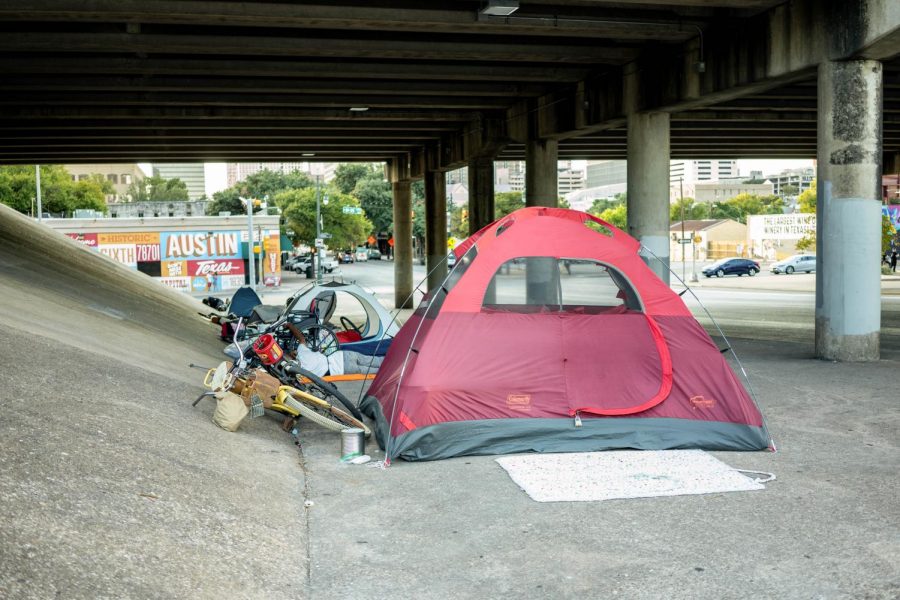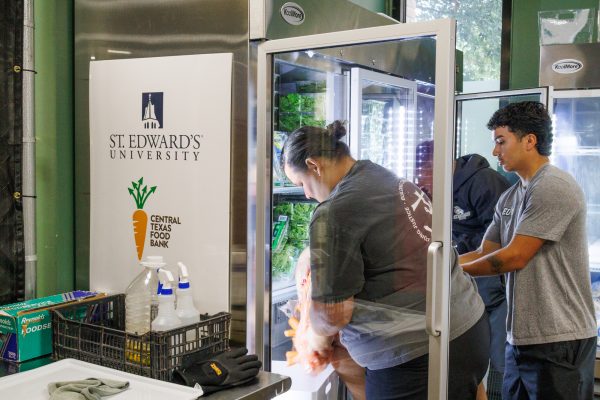Homelessness panel fosters discussion, debate
Many tents where Austin’s homeless population resides are located in various underpasses near downtown.
On Tuesday, Sept. 3, approximately 300 Austin residents, the City Council and Mayor Steve Adler congregated in Jones Auditorium to hold a public forum on homelessness. The purpose of the forum was to try and assuage Austin citizens’ concerns about modifications made to a city ordinance on July 1 regarding camping in public places.
Within the past three years, homelessness in Austin has increased by 10%. Personal difficulties and professional challenges, from the loss of family to the crisis with income, are merely a few of the reasons that homelessness in Austin persists. In 2019 alone, the annual Point in Time count cited the 1,086 Austin residents experiencing homelessness.
Mayor Adler said the affordability of housing and mental health issues are two of the biggest reasons that some are facing such adversity. In addition, the lack of support from the community prevents laying a foundation for the improvement in the lives of the impoverished.
“What we’ve been doing does not work. We’ve satisfied ourselves by moving people around,” Mayor Adler said.
District leaders Ann Kitchen (District 5), Delia Garza (District 2) and Kathie Tovo (District 9), as well as Darilynn Cardona-Beiler (Director of Adult Behavioral Health Systems), announced projects being established to help people locate permanent housing in a timely manner. With initiatives such as the South Austin Housing Center and rental housing units, they highlighted restrictions on drop-ins and provision of support based on referral.
The panelists said the security of the people and of private property were of utmost importance. At the same time, it was said that the homeless are also just as likely, if not more, to be victims of crime. The city officials called attention to the significance of acknowledging the homeless population and practicing inclusivity.
During the forum, an Austin resident accused the council of not taking the homeless problem seriously, saying, “Nothing is gonna change in this city with leaders like this.”
After the panel, two attendees, Rebecca Wright and Toni Teel, talked about their thoughts on homelessness in Austin.
“This new ordinance to allow the homeless to encamp anywhere they choose was not the correct way to go about solving this problem. [Lawmakers] could’ve kept addressing ways to get homeless people into housing and kept things the way that they were, but now it’s an even bigger problem,” Wright said.
Teel was in agreement with one of the ideas presented by the city officials.
“What they said tonight was the most important thing. Meet the homeless people around you and they are there,” Teel said. “They’re not invisible. They’d love to get to know you and they want to be a part of the community. That’s why they’re here. And that’s why they haven’t left.”











